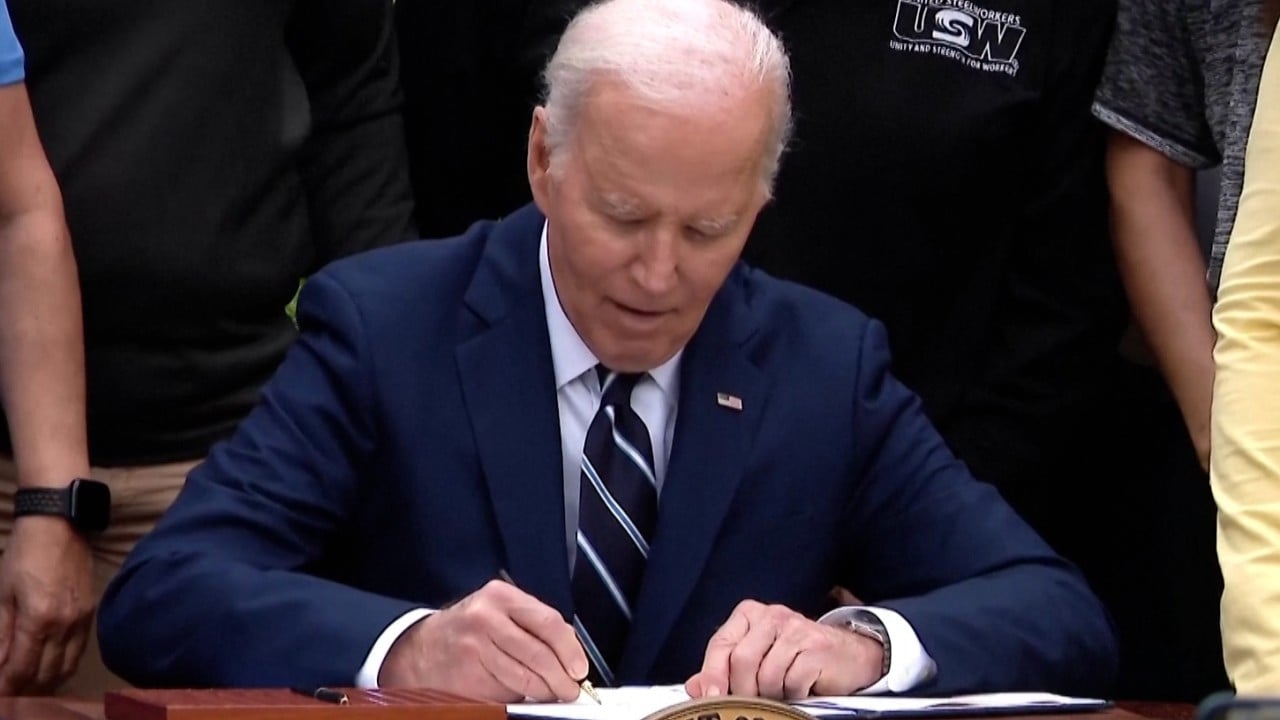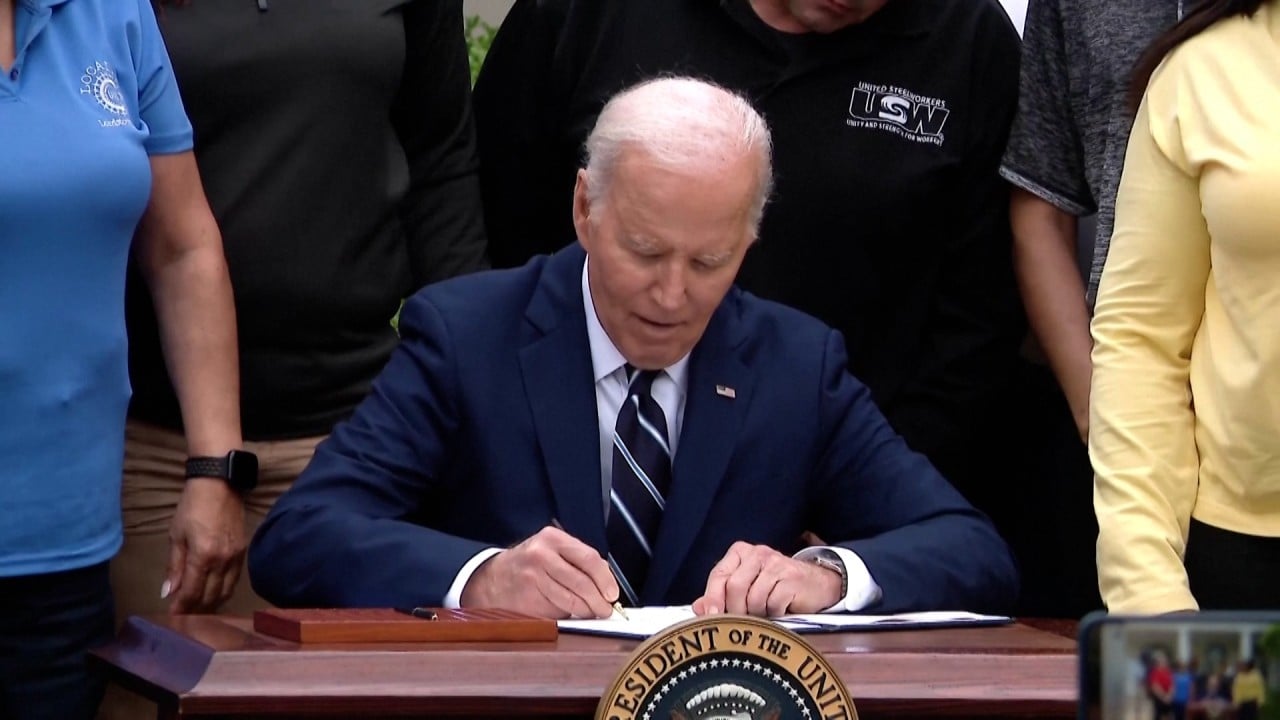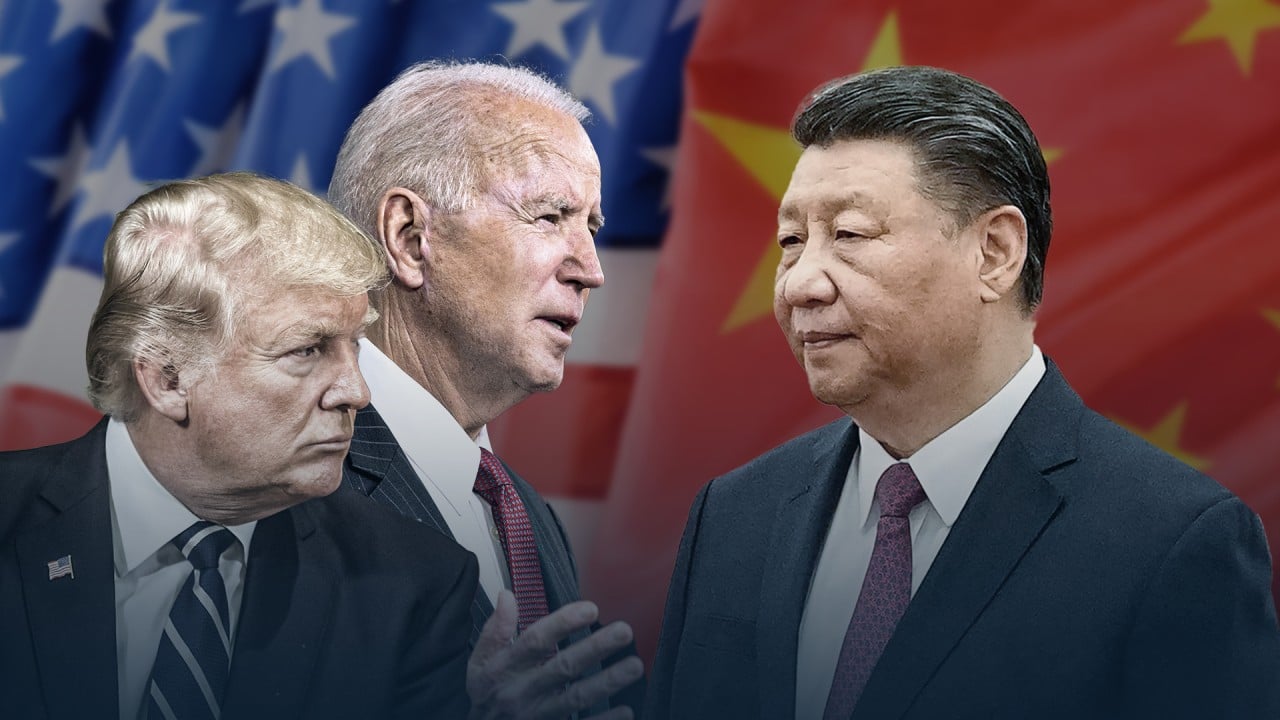In May, the Biden administration announced plans to raise tariffs on Chinese products including semiconductors, solar cells and electric vehicles. This came after US President Joe Biden spoke to the United Steelworkers members at their Pittsburgh headquarters in April, saying he would “consider tripling the tariff rates for both steel imports and aluminium imports from China”.
Should he be re-elected in November, former US president Donald Trump has pledged to enact a 10 per cent across-the-board tariff on imports that he claims will raise billions of dollars in revenue to pay for more tax cuts.
While tariffs might benefit the targeted industry and workers, they often penalise other domestic industries, distort the world economy, lead to inflation and increase costs for consumers. Given the preponderance of the evidence, why do leaders from both parties promote tariffs and protectionism? The reason is domestic politics.
Biden is trying to find ways to build up his appeal to voters. Many of those voters have been hurt by inflation and are unable to pay all their monthly bills, according to recent US Federal Reserve data. Meanwhile, US support for Israel’s war against Hamas in Gaza is alienating some young voters.
Proclaiming himself “the most pro-union president in American history”, Biden wants voters – especially those in battleground states such as Michigan, Wisconsin and Pennsylvania, the core of the American auto industry – to believe that raising tariffs on Chinese products will bring manufacturing jobs back to the United States.
Biden’s US Trade Representative Katharine Tai has asserted that abandoning tariffs on China would alienate his labour union allies and reinforce the Republican Party’s narrative that Biden is soft on Beijing.
Neither Biden nor Trump has presented the full picture of the complex impact of tariffs, which benefit some industries and workers but cause suffering to others.
A May report from the US Trade Representative’s office found that Trump’s tariffs on Chinese products reduced Americans’ real incomes and depressed investment but did not increase manufacturing employment. Similarly, a recent study of Trump tariffs from the National Bureau of Economic Research confirmed that tariffs worked better electorally than economically.
Meanwhile, Trump-era tariffs on Chinese steel were a disaster for consumers and other industries, raising the cost of steel products for major steel consumers such as American carmakers General Motors and Ford, causing each to pay at least US$1 billion in higher steel prices and forcing them to shut down plants.
Estimates suggest Trump’s tariffs on steel and aluminium resulted in 75,000 job losses in metal-using industries in the US, according to one study, while the trade war led to a net loss of at least 175,000 US manufacturing jobs by mid-2019.
Oxford Economics estimates that tariffs from Trump’s trade war with China were associated with 245,000 lost jobs and US$100 billion in lost output in 2018-19.
A 2023 US International Trade Commission report showed that US importers ended up absorbing nearly the total cost of Trump’s trade war. US consumers paid US$236 billion for Trump’s tariffs on Chinese goods, according to data from US Customs and Border Protection.
Eswar Prasad, the former head of the International Monetary Fund’s China division and a senior professor at Cornell University, has called the tariffs a “zero-sum game of industrial policy”.
Tariffs distort the global economy by causing market inefficiencies and creating what economists call “deadweight loss”. A recent report by S&P Global highlights that if tariffs remain in place, the trade war between the US and China would continue to seriously damage the global economy, as “losses in economic output would be permanent as distorted price signals would prevent the specialisation that maximises global productivity”.
The ongoing tariff war between the US and China has made many people worse off while benefiting only a select few. Despite this, Biden and Trump’s positions will preclude any debate this year between protectionism and free trade. Biden’s campaign will attempt to limit the discussion to highlighting a contrast between Trump’s proposed global and indiscriminate tariffs and Biden’s more strategic, targeted ones.
Instead of embracing protectionist policies in the pursuit of narrow political interest at the expense of US and global consumers, both Biden and Trump should prioritise the health of the global economy and propose resuming trade talks with China and finding win-win scenarios that benefit everyone.
It seems politically implausible that a course correction in trade agreements could happen in the midst of a heated US presidential election. Even so, the US and China should start serious engagement on issues of mutual interest where they can find common ground, such as countering the narcotics trade and AI-related risks.
Such engagement would help restore the mutual trust that has deteriorated in recent years, intensify high-level official interaction and preserve the open lines of communication that will be crucial in ending the trade war.
There might not have been any notable breakthroughs achieved in recent high-level exchanges between the US and China, such as the in-person meeting between Biden and President Xi Jinping in San Francisco last year, their follow-up phone call in April and visits to China by US Secretary of State Antony Blinken and Treasury Secretary Janet Yellen. However, these interactions have prevented further fraying of the deteriorating US-China relations.
The US and China should continue such engagement with the goal of easing trade tensions. This would be in the interest of not just Washington and Beijing but the entire world.
Sumesh Shiwakoty is a Vienna-based policy analyst and commentator




